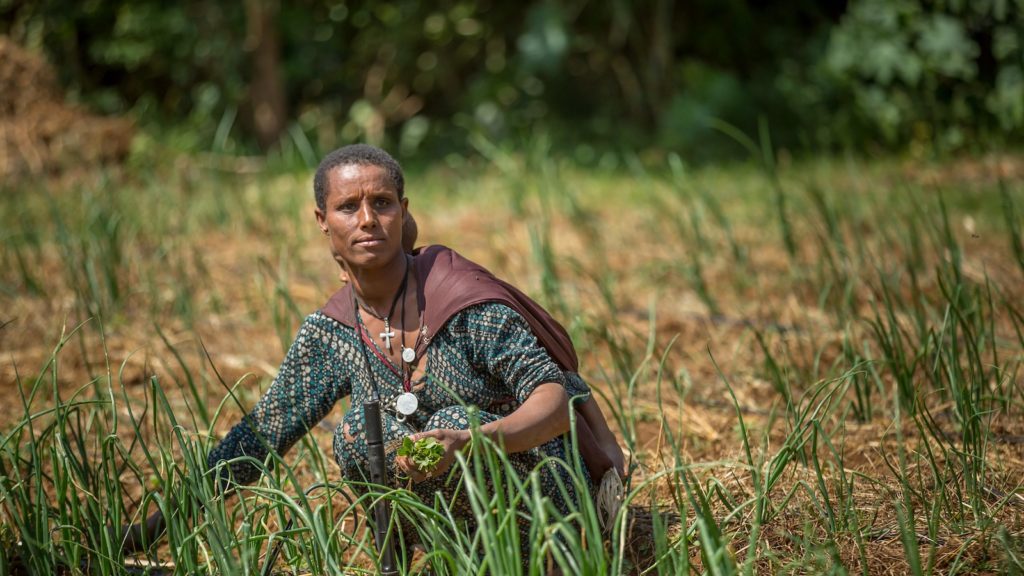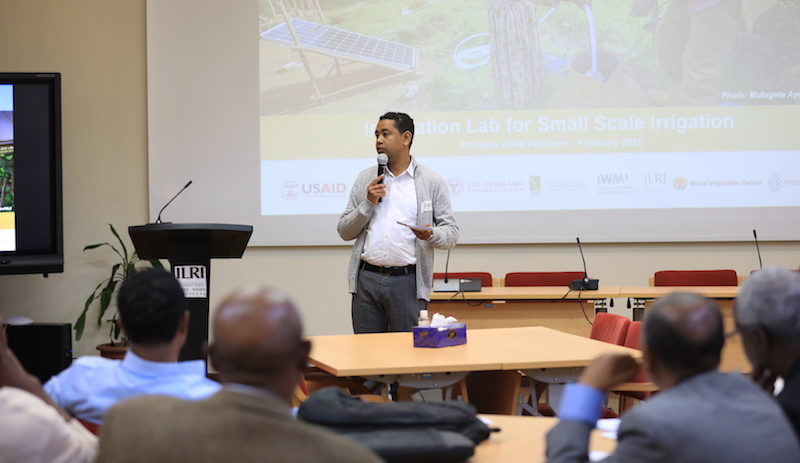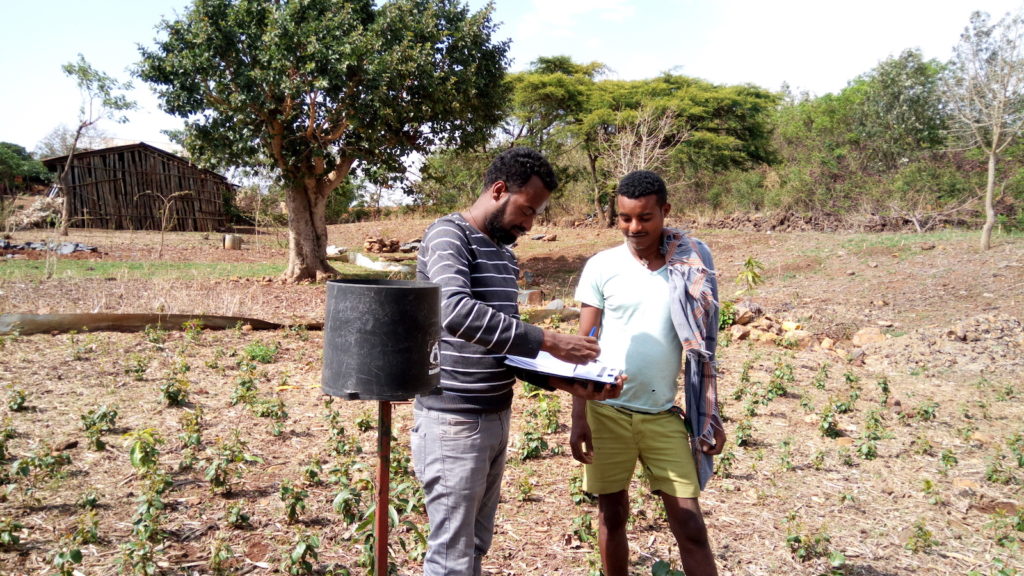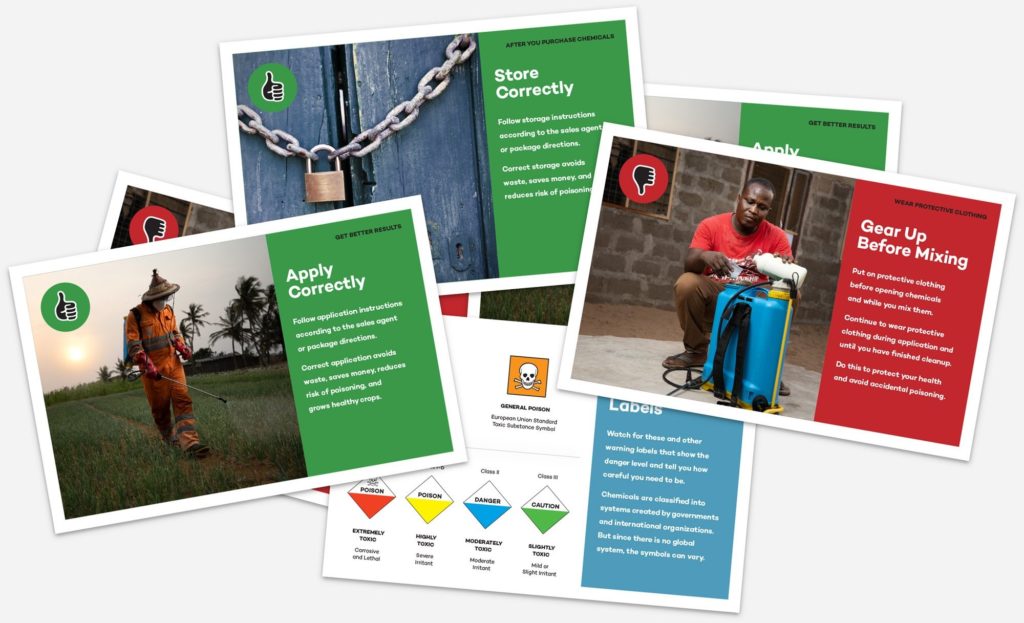Small scale irrigation holds high potential for climate adaptation and meeting sustainable development goals, but capacity is needed at multiple levels to ensure sustainable management of water resources.
ILSSI aims to enhance sustainable land and agricultural water management at multiple levels to increase benefits to farmers and market actors through capacity development, development of guidance resources and multi-stakeholder engagement. Innovative approaches to human and institutional capacity development are being developed toward scaling SSI, while also supporting efforts for water resource planning.
ILSSI is creating demand for and commitment to scientific evidence for decision-making, planning and investing, while at the same time, generating the capabilities of individuals and institutions to deliver on the science into the future. ILSSI also seeks to promote shared learning through multi-actor processes and dialogues in the sub-sector. Facilitating linkages between public, private and research/science actors in the irrigation, agriculture, nutrition and related sectors enhances shared knowledge necessary for innovation.
Challenges
Higher capacity and broader engagement are needed at multiple levels and across sector to effectively plan for and manage water resources, toward mitigating risks and handling trade-offs associated with irrigation investments. Many countries and transboundary basins lack resources and technical expertise, as well as the linkages needed between education, research and private sector/market actors in the agricultural water sector. Because of these challenges, organizations and research institutions are often unable to respond to knowledge needs of decision-makers.
At regional and national levels, policy makers and planning agencies require information for short- and long-term decisions. Scientists across disciplines should be well-resourced and highly skilled to collect data, implement analysis and monitor water and other natural resources. From watershed to farm level, farmers, cooperatives, and extension workers need support to encourage investments in suitable technologies and practices for sustainable irrigated production.
Information needs do not stop with public agencies. A wide range of private sector companies and service providers also need information and expertise to expand markets for irrigation inputs, while balancing sustainability of the natural environment. Equally important, meaningful engagement needs to be facilitated between actors at all levels from basin to watershed to farm.

Top Capacity Development Materials
Nutrition-Sensitive Irrigation and Water Management
This report by World Bank summarizes evidence and guidance on project design and results framework indicators for nutrition-sensitive irrigation and water management investments for which improving nutrition in vulnerable populations is a specific objective of the project. Drawing on the current body of evidence on the links between irrigation, water management, and nutrition through the pathways of production, income, women’s empowerment, and water and hygiene, the report describes eight nutrition-sensitive approaches for achieving greater impacts on early child nutrition. Results framework indicators are proposed to support monitoring and evaluation of nutrition-sensitive investments in water management and irrigation.
Irrigation et gestion de l’eau tenant compte de la nutrition
Ce rapport de la Groupe de la Banque Mondiale résume les preuves et les orientations sur la conception du projet et les indicateurs du cadre de résultats pour les investissements dans l’irrigation et la gestion de l’eau sensibles à la nutrition pour lesquels l’amélioration de la nutrition des populations vulnérables est un objectif spécifique du projet. S’appuyant sur l’ensemble actuel de preuves sur les liens entre l’irrigation, la gestion de l’eau et la nutrition à travers les voies de la production, du revenu, de l’autonomisation des femmes, de l’eau et de l’hygiène, le rapport décrit huit approches sensibles à la nutrition pour obtenir des impacts plus importants sur la nutrition du jeune enfant . Des indicateurs du cadre de résultats sont proposés pour soutenir le suivi et l’évaluation des investissements contribuant à la nutrition dans la gestion de l’eau et l’irrigation.
La version originale de cet ouvrage a été publiée en anglais en 2019. En cas de divergence, entre le texte anglais original et cette traduction, la version dans la langue d’origine fait foi. Cette traduction a été soutenue par le Laboratoire d’innovation pour l’irrigation à petite échelle de l’USAID
Multi-Stakeholder Dialogues
ILSSI addresses small scale irrigation (SSI) challenges through engagement with important multi-stakeholder initiatives, facilitating multi-stakeholder dialogues (MSD) that seek to institutionalize sustainable and inclusive scaling pathways, based-on evidence from research and learning partnerships. Our approach to facilitating MSDs is to engage and interact with relevant, existing platforms to include, where feasible, sustainable SSI scaling and agricultural water management (AWM) agendas. See our MSD reports below:
- Farmer-led Irrigation Multi-Stakeholder Dialogues: The role of offtake markets in unlocking small scale irrigation investments
- Farmer-led Irrigation Multi-Stakeholder Dialogues: Value Chain Approaches to Small Scale Irrigation Development – 2021
- Multi-stakeholder dialogues supporting the scaling of inclusive and sustainable agricultural water management in Mali – 2021
- Farmer-Led Irrigation Multi-Stakeholder Dialogues: Financing solutions for scaling sustainable and inclusive farmer-led irrigation in Ethiopia – 2020
- A multi-stakeholder dialogue on farmer-led irrigation in Ethiopia: Engaging with stakeholders from the Agricultural Water Management Task Force – 2020


Contributing to solutions
Monitoring, analysis and planning for sustainable water resource use
ILSSI works to support water and natural resource planning and monitoring from plot to watershed scale, and from basin to regional levels, as well as across multiple uses and sectors. We offer short-term training for individuals and institutions on our Integrated Decision Support System and open-access analytical models. Training courses are hosted by local institutions, tailored to their needs and demands, and utilize local data and cases. Past trainees include basin authorities, irrigation agencies, donors and non-government organizations, companies in the water sector as well as research institutions and national universities. We have more recently designed trainings for specific commodities and crops as well as across regions. The regular provision of the courses and follow-up mentoring help to harmonize planning and analytical tools within regions and basins. ILSSI has provided IDSS trainings for thousands of men and women scientists in Ethiopia, Ghana, Ivory Coast, Nepal and Tanzania.
Providing evidence-based guidance for equitable, impactful and sustainable outcomes
ILSSI supports improved planning and project design by development partner institutions and organizations working in farmer-led small scale irrigation. We particularly target the integration of gender and nutrition for more equitable and food-secure outcomes. Our evidence-based guidelines and tools can be used for building awareness, knowledge, and skills within organizations and projects.
In addition, ILSSI has worked with other projects and stakeholders to generate open access materials on safe agri-chemical handling practices. ILSSI research shows that intensification with irrigation also comes with increased use of inputs. Farmers require the skills on safe use of agri-chemicals to ensure both human and ecosystem health.
Supporting future scientists and evidence-based decision making
ILSSI contributes to expanding the cohort of scientists that will provide evidence for policy, planning, and decisions in the future. Our partners and researchers work with graduate students at national universities to enhance field studies, data collection and analysis as well as presentation and publication of research. As sustainable water management is inter-sectoral, our students cover topics such as economics, nutrition, gender, water productivity, governance, and fodder and forages.
ILSSI integrates education and private sectors through Innovation Scholarships and internships, based on a competitive and participatory process. Supported students are embedded into the activities and operations of private sector companies, through various forms of action research, data collection, and internships. This approach emphasizes innovation systems, private-public sector collaboration and systematic transformation for scaling solutions.
Integrating sectors and markets through dialogues
ILSSI facilitates engagement between public, research and private actors across the irrigation, agriculture, and finance sectors toward stronger systemic linkages in irrigated value chains. Thin and frontier markets are often characterized by low trust and insufficient information flows between actors, which increases risks for private companies. ILSS convenes multi-stakeholder dialogues to provide a focused space for networking, exchanging information and provoking innovation on water and climate challenges. The dialogues convened in Ghana, Ethiopia and Mali are strengthening capacity within the overall market system. For private sector actors, the dialogues are opening up opportunities for collaboration and mobilization of resources, which can accelerate commercialization in farmer led irrigation development.
Select resources
- Exploring small scale irrigation-nutrition linkages. International Food Policy Research Institute (IFPRI) Project Note.
- Evaluation du potentiel d’expansion durable de l’irrigation solaire à petite échelle à Ségou et Sikasso, Mali. International Water Management Institute (IWMI) Brief.
- Pathways to more nutrition-sensitive irrigation. IFPRI Video. (French and English)
- Considering gender when promoting small-scale irrigation technologies: Guidance for inclusive irrigation interventions. IFPRI Project Note.
- Mettre la technologie d’irrigation à petite échelle au service des femmes. IFPRI Video Presentation.
- Farmer-led Irrigation Multi-Stakeholder Dialogues: Value Chain Approaches to Small Scale Irrigation Development – 2021
- Farmer-Led Irrigation Multi-Stakeholder Dialogues: Financing solutions for scaling sustainable and inclusive farmer-led irrigation in Ethiopia – 2020



